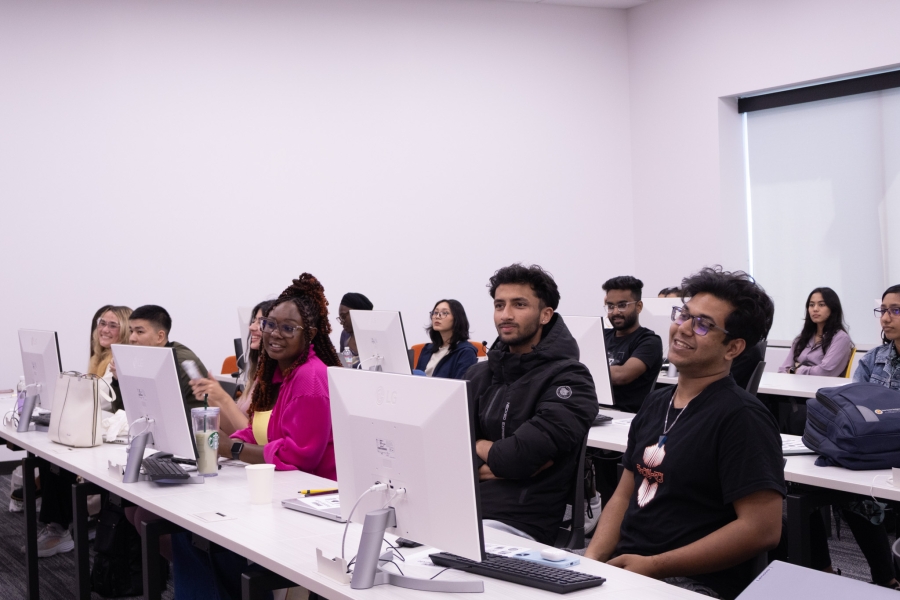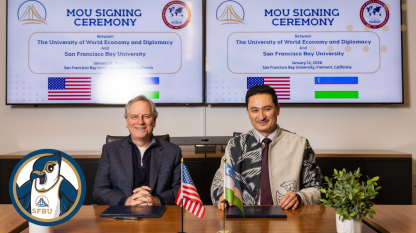
After eight months of hard work, San Francisco Bay University launched its new core curriculum in the fall of 2024. The effort is already paying off with unprecedented semester-to-semester retention in its student population.
According to Vice President for Strategy and Innovation Heather Herrera, Ph.D., the school retained 92% of its total undergraduate population, which includes international, domestic and returning students. However, the rate is more noteworthy when broken down into specific demographics, like the fact that SFBU retained 81% of its low-income, first-generation domestic students of color.
”On average, the rate is in the 60s when you talk solely about a domestic population,” Herrera said “And then if you break that down to first-generation students of color, it goes into the 30s. What we have is remarkable.”
Herrera credits the high retention rate to SFBU’s holistic approach to education found in the new curriculum. Previously, it was disjointed and lacked applied learning, not preparing students for the demands of today’s workforce.
“We had to take a really close look at the curriculum and ask ourselves hard questions around why people are losing confidence in higher education,” Herrera said.
Now, students receive educational, financial and wellness support in a variety of ways to make sure no bright minds fall through the cracks. The school created student identities that correlate to what employers are looking for — such as Tenacious Leader and Tech Trendsetter — and assigned them competencies like creative problem-solving and emotional intelligence. When combined with measurable behavioral indicators, the curriculum complements the university’s six pillars to encompass and inform the student experience equally: academics, life literacy, wellness, multiple meaningful relationships, financial support and career readiness.
The Startup Scholar’s first cohort is a prime example of students engaging with the new curriculum and staying enrolled. Alex Cruzado of Van Nuys spent a large portion of his childhood in Peru. He wants to become an immigration lawyer after his time at SFBU, hopefully starting his own immigration organization to help people from his community.
“No university is perfect,” Cruzado said. “But because of the class size, you can connect more with the teachers and better understand the curriculum. I feel a connection with many people and have built a wonderful community. There is a high degree of honesty and integrity among the mentors at the school. They are genuinely invested in your future, providing personalized guidance to help you achieve your goals, wherever your path may lead.”
Tatiyana Coleman has always wanted to live in California to be an entrepreneur. From New Mexico, she came to SFBU to study business administration and the Startup Scholar program is making her passion for creating sustainable, affordable homes attainable for people.
“The support system in place has encouraged me to think bigger, take initiative and embrace the process of turning an idea into reality,” Coleman said. “The program creates a culture of innovation and collaboration, encouraging students to take initiative and contribute to the growth of the institution.”


